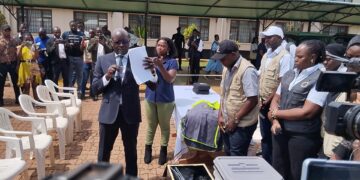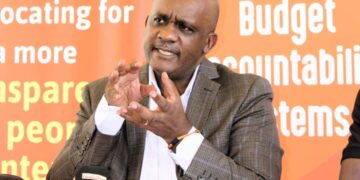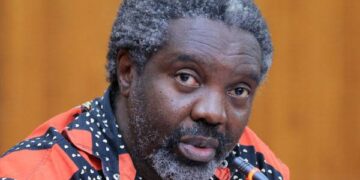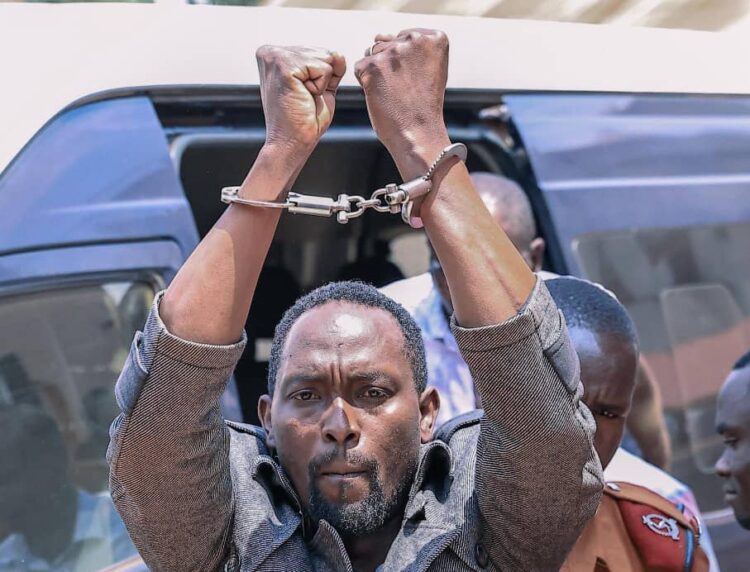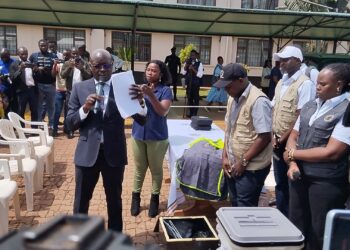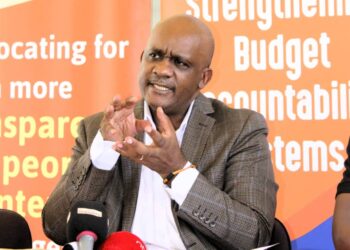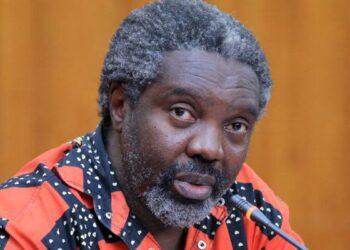By Leonard Kamugisha Akida,
KAMPALA
The Minister for Children and Youth Affairs, Balaam Barugahara Ateenyi, has urged young people to engage in peaceful and constructive politics, warning that security agencies will not tolerate acts of violence or abusive language.
“I appeal to the youth in Uganda to play clean politics and comply with the laws that govern this country,” he said.
Barugahara condemned the misconduct of some youth, including wearing gazetted military attires such as red berets, and conducting military drills, but also criticized the unprofessional arrests of individuals by security forces. His remarks come amid growing concern over the alleged abductions and politically motivated arrests of opposition-leaning youth, which have left many families vulnerable.
The minister was addressing journalists at the Uganda Media Centre on Friday ahead of the belated International Youth Day celebrations, which will be held on September 19 at Masindi Golf Course. The commemoration was postponed from August 12 due to President Yoweri Kaguta Museveni’s official engagement in Cairo.
This year’s global theme is “Youth Advancing Multilateral Cooperation through Technology and Partnership,” while Uganda has localized it to “Youth Advancing Socio-Economic Transformation through Technology and Partnership.”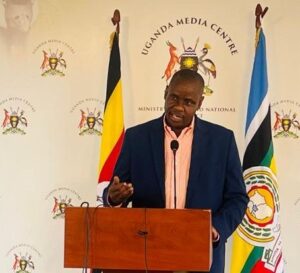
Barugahara said the theme aligns with Uganda’s Vision 2040 and the National Development Plan, both of which position young people at the centre of the country’s transformation agenda. According to the 2024 census, Uganda’s population stands at 45.9 million, with 73 percent below the age of 30, making it one of the youngest nations in the world.
“The demographic is not just a statistic; it is our strategic advantage. With the right policies and investment, Uganda’s young people can be the engine to drive economic growth and sustainable development,” Barugahara said.
He acknowledged the persistent challenges facing youth, including unemployment, limited access to capital, low school completion rates, and regional disparities such as Karamoja’s literacy rate of just 39 percent.
Nonetheless, he cited government interventions like the Youth Livelihood Programme, the Presidential Skilling Initiative, the Graduate Volunteer Scheme, and upcoming projects such as the National Youth Innovation Fund and the revised National Youth Policy 2025 as evidence of commitment to youth empowerment.
“Uganda’s youth population is not a burden; it is our greatest resource. When empowered, skilled, and supported, young people will drive the country toward a more prosperous, inclusive, and resilient future,” he said.















